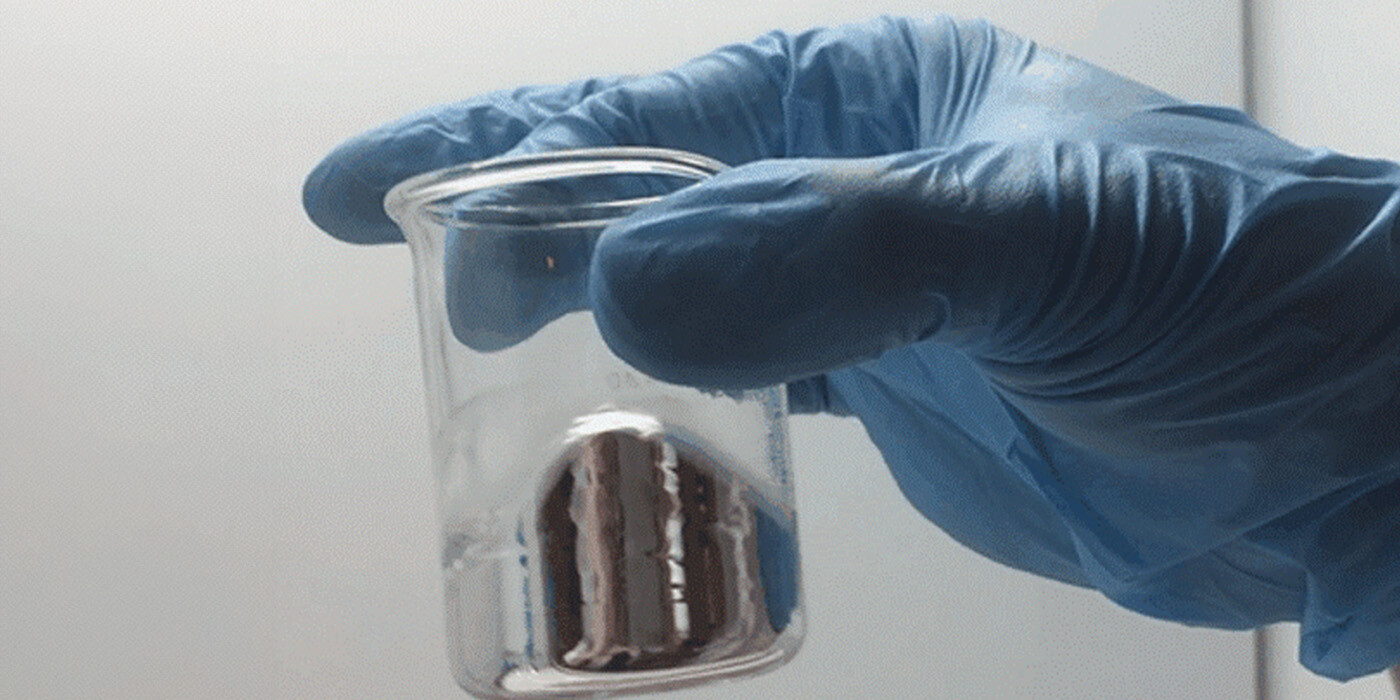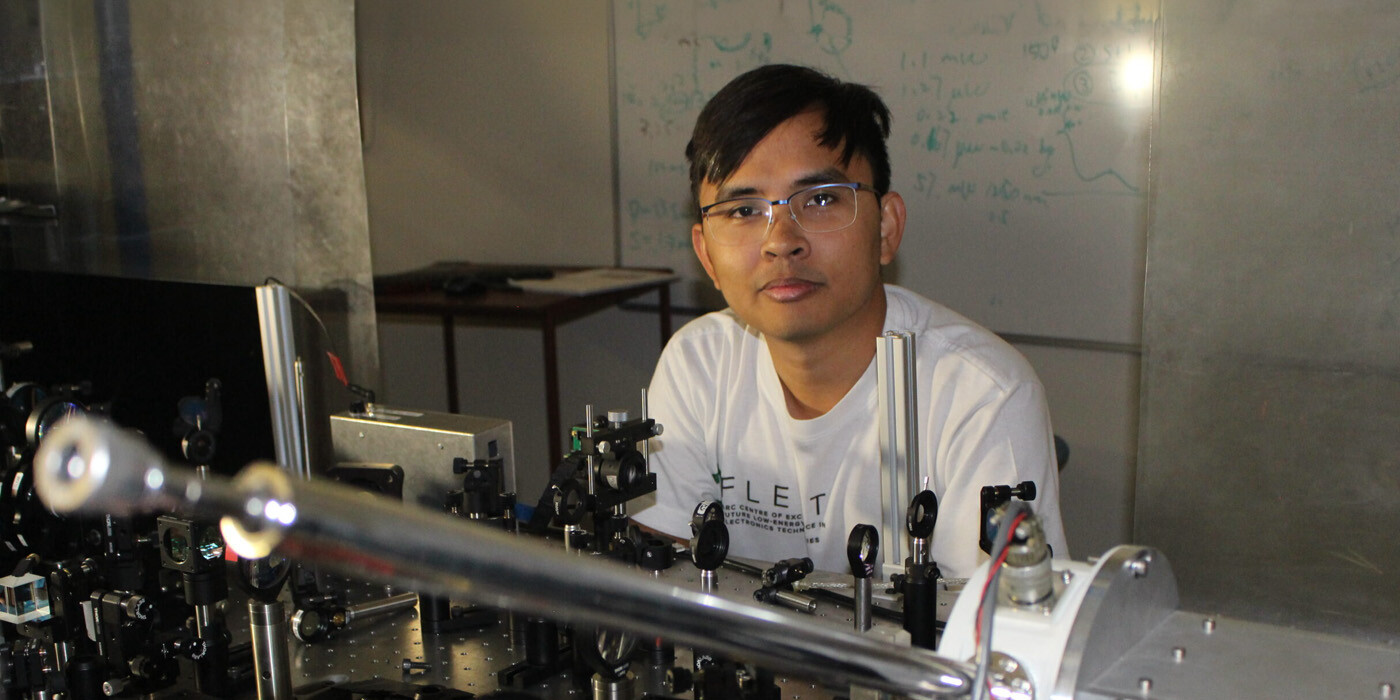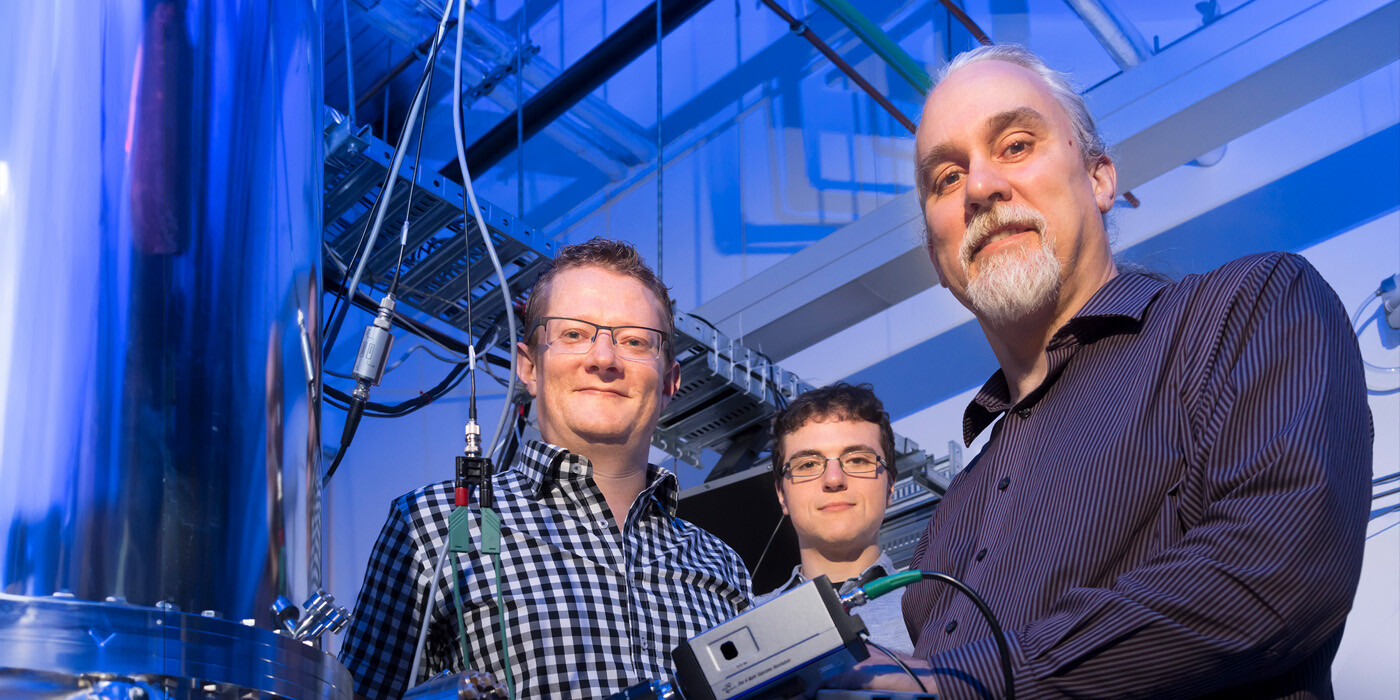670
research papers published
68
h-index at June 2024
3
ARC Linkage and 2 industry-funded projects established
Shaping the scientific community and industry through ground-breaking innovations, technologies and discoveries.
FLEET’s mission was to advance science towards reducing the energy used in electronics and computation so as to create a sustainable future for computing. This was accomplished by enabling scientific discoveries at the scientific frontier.
FLEET has developed scientific foundations and intellectual property for fundamentally new electronics technologies to supersede silicon.
The Centre has achieved a key goal that was outlined at the start: realising topologically-protected, dissipationless transport of electrical current at room temperature, and developing the intellectual property to build novel devices based on the ability to switch on and off this dissipationless current (see the case study).
In addition, FLEET demonstrated excitonic dissipationless transport at elevated temperatures, driving systems out of equilibrium to explore new paradigms in electronics (see the case study).
Case Studies
Liquid-metal technologies opening pathways to sustainable science
FLEET collaborations yielded liquid-metal discoveries allowing new, cheaper 'touch printing' of materials with environmental benefits including carbon-capture, water filtration, and hydrogen catalysis for alternative energy systems.
A fundamental physics discovery
FLEET researchers achieved the first-ever ‘snapshot’ of Bose-Einstein condensation, the quantum state known as the fifth state of matter.
Future topological electronics
FLEET researchers achieved a world first: successfully ‘switching’ a topological material, via application of an electric field: a step towards low-energy topological transistors.


